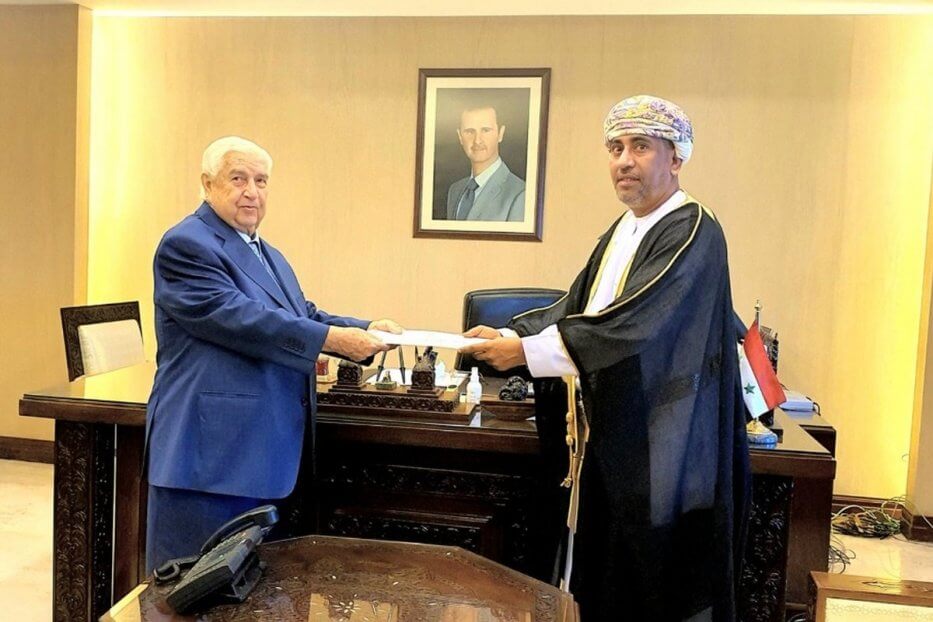On Sunday, Syrian foreign minister Walid al-Moallem accepted the credentials of Omani Ambassador Turki bin Mahmood al-Busaidy, who is the first envoy to be appointed to the war-torn country from the Arab Gulf since 2012. Ever since Syrian President Bashar al-Assad’s rise to power, state-led attacks on protestors and the reignition of civil conflicts prompted Gulf governments to downgrade or close their diplomatic missions to Damascus.
Muscat emerged as a rare exception among Arab Gulf countries in continuing to keep diplomatic relations with the Assad regime after the 2011 uprising, despite regional pressure from its Gulf allies and the United States (US). Oman’s former leader, the late Sultan Qaboos, followed a strict non-intervention policy, thereby maintaining ties with Damascus even as the uprising turned into a violent civil war, with the hopes of providing humanitarian support to those affected by the war. Yusuf bin Alawi, the Sultanate’s former foreign minister, also made two official visits to the country since the uprising. In 2015, he visited Damascus to discuss possible ways to “resolve the crisis in Syria.” Further, in July 2019 he met with his Syrian counterpart and the President to discuss regional security and bilateral relations.
As the US continues to sanction the Assad regime and its supporters via the Caesar Act, its Arab allies in the Gulf are slowly looking to reconcile with Damascus in an attempt to expand their influence in Syria and counter Iran and Turkey’s power in the country. In 2018, the United Arab Emirates (UAE) became the first Gulf country to reopen its embassy in Damascus with the appointment of a chargé d’affaires, stating that the move was aimed at curbing the risks of regional interferences by non-Arab forces in Syrian and Arab affairs. Bahrain announced full operations of its Damascus embassy the next day as well. In January 2019, Oman, Bahrain, and the UAE also restarted flights to the Syrian capital.
Kuwait, however, has said that it will only reopen its diplomatic mission in Syria if there is an agreement to do so in the Arab League, which revoked Damascus’ membership in 2011. Meanwhile, Saudi Arabia and Qatar have made no indications of reestablishing ties with Syria so far.
The Syrian conflict is a civil war between Assad’s regime, Syrian Kurdish fighters, and members of the Islamist groups. The issue has also escalated to a regional proxy fight between Turkey and Russia, with Ankara backing opposition rebels with military and financial might and controlling strategic zones in the country. However, while Turkey is mainly focused on fighting the influence of the Kurdistan Worker’s Party, Qatar supports the Muslim Brotherhood, and Saudi Arabia backs Sunni rebel groups. Simultaneously, Assad’s forces backed by Moscow and Tehran have managed to recover control of most of the country so far, increasing concerns regarding regional and human security. Oman’s latest move can, therefore, be seen as the Gulf state’s attempts at increasing its negotiating power in the affairs of the conflict-ridden state.
Oman Emerges as First Gulf Country to Resend Ambassador to Syria
Ambassador Turki bin Mahmood al-Busaidy was appointed to the post by a royal decree in March.
October 6, 2020

Syrian foreign minister Walid Al-Moallem (L) and Oman's Ambassador to Syria Turki bin Mahmood Al-Busaidy on 4 October. SOURCE: TWITTER
